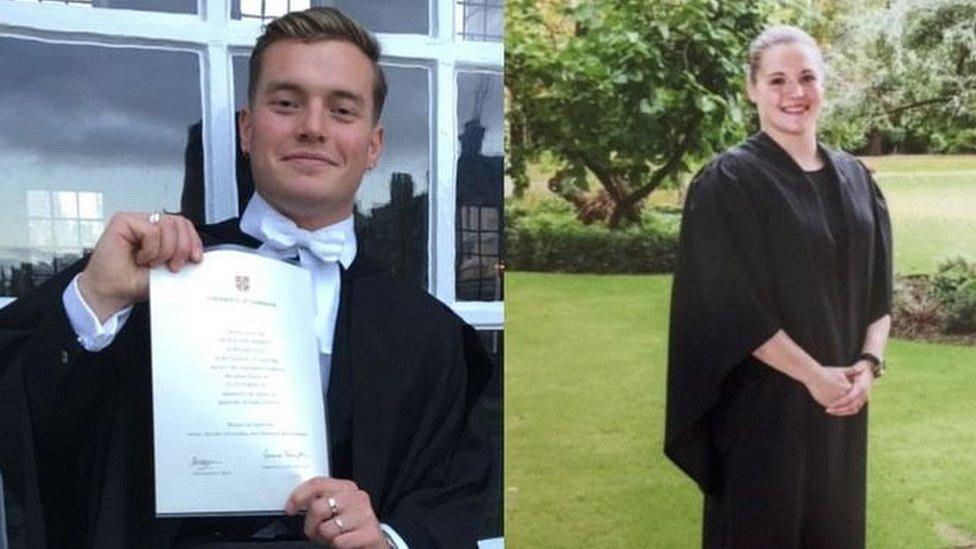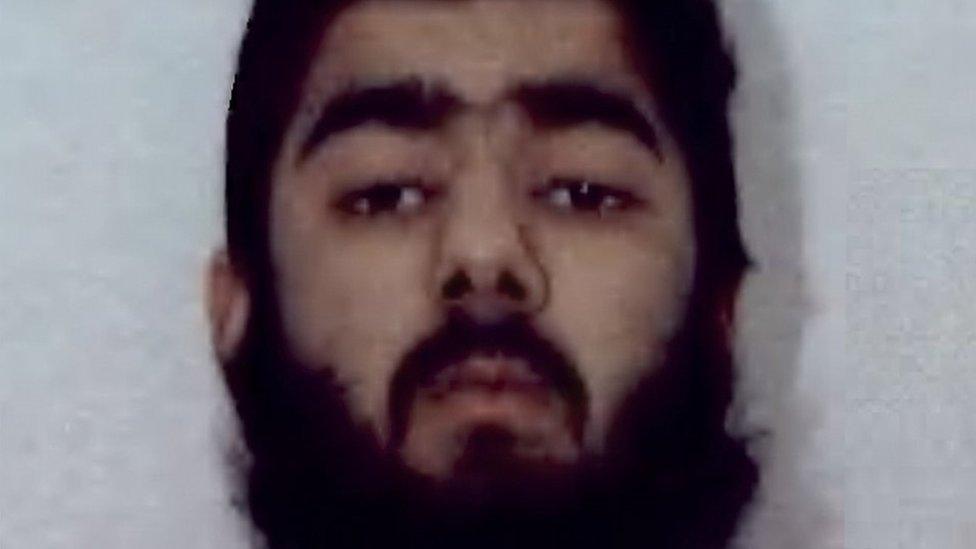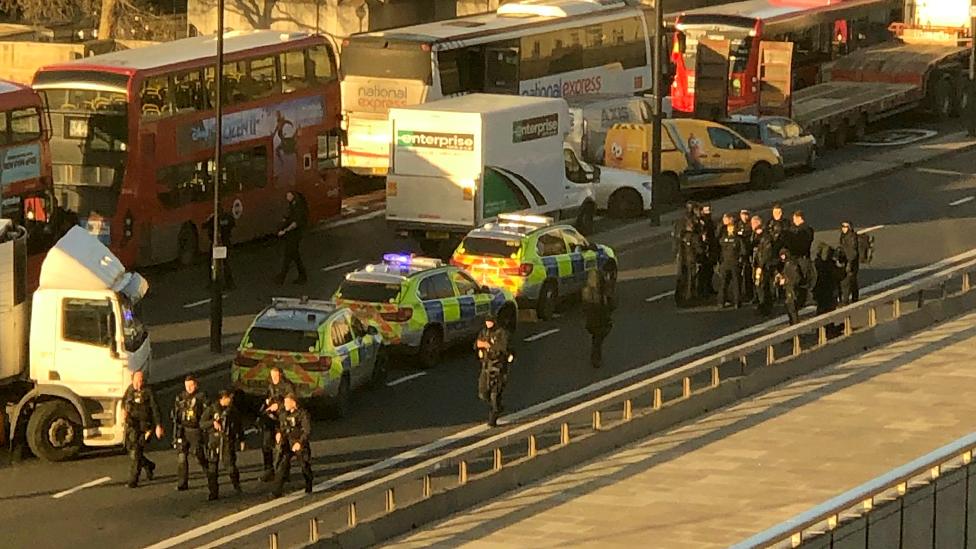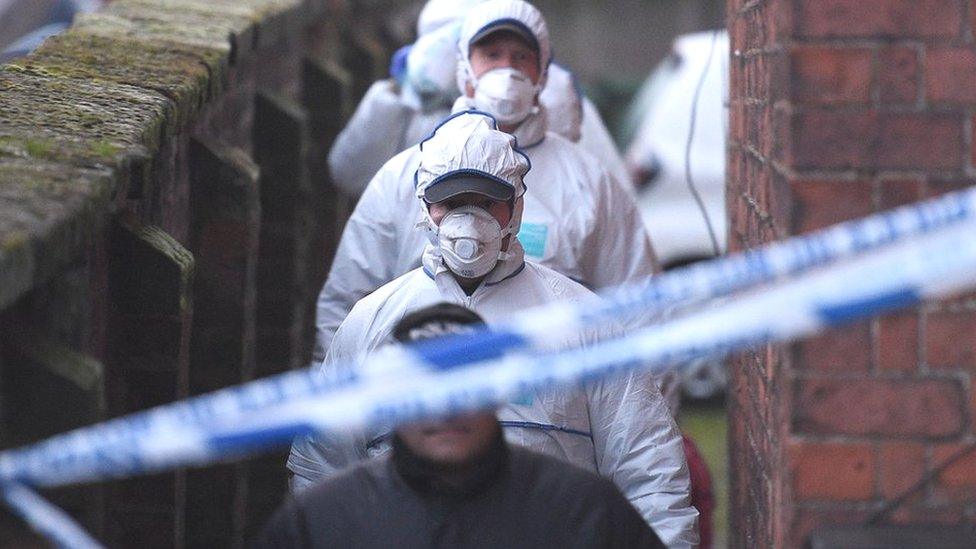Fishmongers' Hall: MI5 'had intelligence suggesting Usman Khan had been plotting'
- Published

Jack Merritt and Saskia Jones were killed during a conference about the rehabilitation of offenders
MI5 had intelligence suggesting the Fishmongers' Hall killer might have been planning an attack before he was released from jail, a court has heard.
Usman Khan, 28, fatally stabbed Cambridge graduates Jack Merritt and Saskia Jones at a prisoner rehabilitation event in November 2019.
He injured two others before he was shot dead by police on London Bridge.
A pre-inquest hearing was told Khan was deemed a "high-risk category A prisoner" before his release.
He had been jailed in 2012 over a plot to blow up the London Stock Exchange.
On Friday, coroner Mark Lucraft QC heard arguments from the victims' families that individual MI5 officers should give evidence, rather than a single high-ranking officer, known as Witness A.
Nick Armstrong, for the Merritt family, said: "We do not want an overarching narrative, we want the facts, the detailed facts."

Usman Khan, who was armed with two knives and wore a fake suicide vest, was tackled by members of the public then shot dead by police on London Bridge
He added: "This is about the level of risk Mr Khan represented and the level of unknowns about the risk, and the decisions that were taken, despite those unknowns, to let him go to Fishmongers' Hall.
"The fact he was in a high-risk category A shortly before release is significant.
"He spent much of his detention in special units and went straight out into the community without proper scrutiny.
"It would not have taken much in the way of information-sharing or concern to have changed the outcome of this."
Video footage shows the moment London Bridge attacker was stopped
Speaking by video-link at the Old Bailey, Mr Armstrong went on: "MI5 had intelligence before release he was planning a post-release attack.
"That is a matter of obviously great significance."
There was evidence Khan had been radicalising other inmates and encouraging violence, the court heard.
The lawyer added that Khan had been suspected of "false compliance" with with de-radicalisation courses and licence conditions, and was considering relocating to Pakistan and giving up his UK nationality.

Jonathan Hough QC, counsel for the coroner, confirmed that police and probation service officers would give evidence on the decision-making in Khan's case.
If there was information not disclosed to decision-makers then Witness A could talk about that, he said.
Mr Hough went on: "Decision-makers can be asked what they would have done if that [intelligence] was brought to their attention.
"MI5 had intelligence shortly before his release he might return to his old ways on the outside, ways of terrorist offending."
Mr Lucraft set a further pre-inquest hearing for 25 March.
The full inquest into the deaths of Mr Merritt, 25, and Ms Jones, 23, is expected to take place in April. Khan's inquest will follow theirs.
- Published16 October 2020

- Published1 December 2019

- Published3 December 2019
